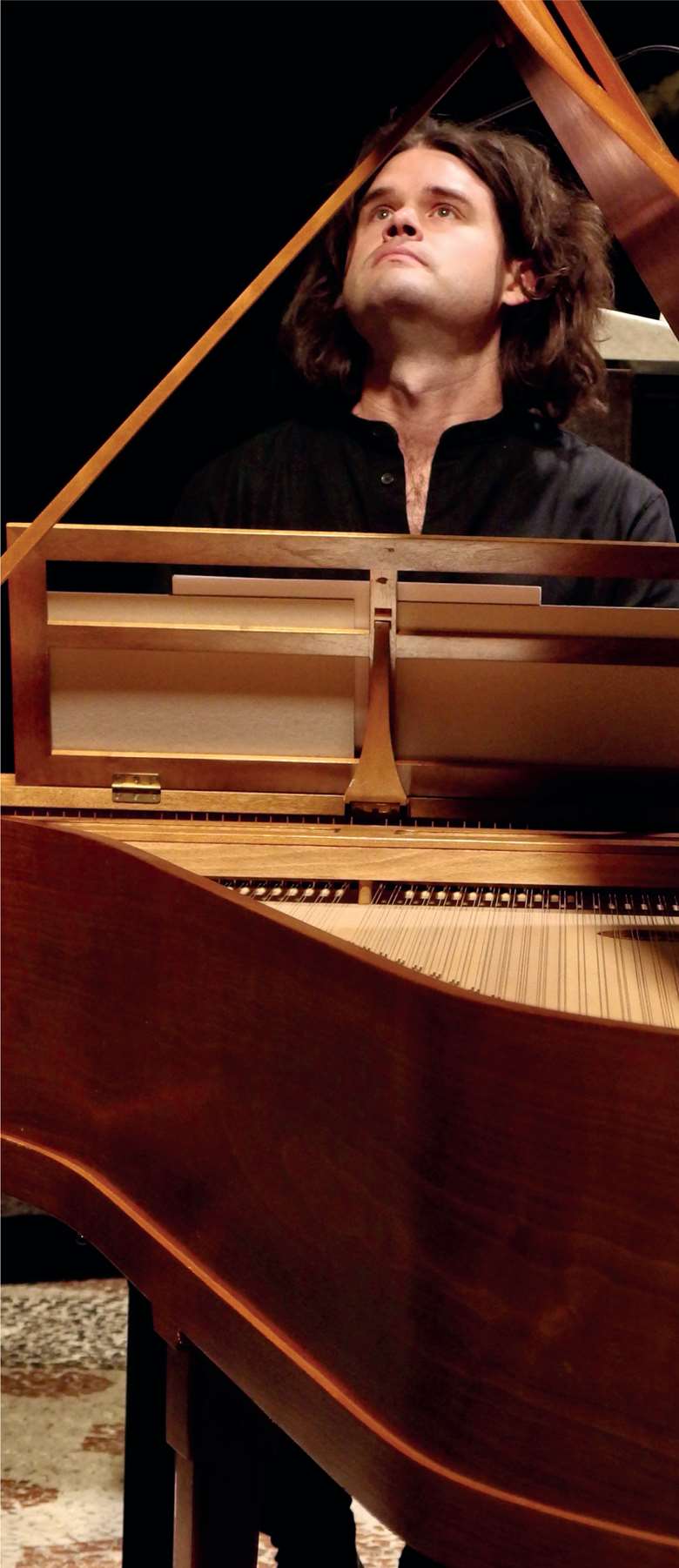Bobby Mitchell: sense of self
Jonathon Brown
Wednesday, November 2, 2022
Jonathon Brown meets Bobby Mitchell, artistic director of the EBEN festival in France, to discuss his freestyle approach to Schumann's late works, and the liberating idiosyncrasies of Haydn

PIETRO VIVIANI
Bobby Mitchell is definitely a ‘Bobby’ in the way that Robert Schumann isn't. But after a long lunch with Mitchell of liver and rösti washed down with Chasselas, the presence of Schumann was overwhelming.
Born in New Orleans in 1985, Mitchell has adopted Mitteleuropa as his home for well over a decade. Landlocked doesn't matter: there are the lakes, while distances count for nothing thanks to the trains. We met in Zürich like schoolboy trainspotters. It turned out that the city was precisely midway between our starting points, so our trains arrived within three minutes of each other. Similarly, Mitchell's centre of cultural gravity is the Western, especially European, tradition – a position that can seem rare in our spongelike quest to absorb the music of far-flung cultures. Mitchell is happy to be ‘grounded’ in familiar cultural territory.
‘I play the piano – that's my world. And in terms of repertoire, the most substantial part comes from the past 250 years in Europe. On the one hand that is a specific focus of mine; but then again piano music is vast, almost limitless. Just think of Schumann: most performers today play less than a tenth of what he composed for the piano.’
We ponder how this injustice has been allowed to persist ‒ and is about to be set right as Mitchell embarks on a complete recording series of the composer's piano works. As we converse, interesting lines of thought emerge. Mitchell is articulate about music in a direct and wide-ranging manner. It's not just the sporadic, wild hair that reminds me of Walt Whitman.
I'm interested in finding the music behind the notation
Two aspects of Schumann strike him as modern in particular ways: ‘He's very much a composer for our times. For one thing, he's democratic. Most composers, even among the Romantics, are rather defined in their style, like Beethoven. But Schumann has this wonderful open-endedness that compels you to be yourself in his music. Look at some of the expressive markings: bravura, humour, pomp, fantasy, reflection… He's asking you, “How about it if…?” in a way no other composer does. He's the most contemporary composer of the 19th century. This music was written to be played at home but to me only Schumann's still sounds that way, as if it's your music in your home.’
What of Schumann's mental health – does he think people find it easier to ignore the later music because it was the product of a disturbed mind? ‘The late works are unique, rich and intricate music. He's all too human. You're right up close to him. It's very personal and gripping.’
Mitchell's playing demands the epithet ‘personal’ ahead of most. ‘I'm interested in finding the music behind the notation – it's only a rudimentary shorthand really. After all, piano music was composed at the piano, where the composer heard everything he or she wrote. So as an interpreter at the keyboard, you're playing as if you're composing. This is what fascinates me.’
Not surprisingly Mitchell is a composer and accomplished improviser – YouTube carries his own set of Songs from Childhood and a fine cadenza to the first movement of Beethoven's Fourth Concerto that clearly delights the orchestra. His exploratory, extemporary use of tempo and phrasing, even split hands, offers a louche, ‘crumpled linen’ look where in Schumann we may have slunk into a world of slick sheen. Similarly, Mitchell invites a wry wink as he surprises us with a fortepiano prank in the reprise of a Haydn sonata. All this champions his belief that the score is only the start.
‘Haydn's idiosyncrasy obliterates any approach that attempts to abide by the strictures of the metronome. That's not what this music is about. It's like wayward speech patterns: somehow introducing an unexpected fortepiano helps with its chit-chat vibe.’
This all adds up when you learn that Mitchell had a long, fruitful and close relationship with composer and pianist Frederic Rzewski, out of which these instincts have flourished. ‘Frederic believed in the score, that it was there to be followed. His recording of Beethoven's Hammerklavier, for instance, is very precisely respectful, almost raw. But he also wanted you to be yourself, hence his own cadenzas that he inserted in the sonata! I'd play him his music and sometimes change the markings, and he was always pleased that I'd done something with it myself. This may seem like a contradiction, but with someone as powerfully musical as Rzewski, it was simply natural.’
This perfect union of the contradictions between what is written and how it is played reminds me of Whitman's poetry (‘Very well then! I contain multitudes…’) and it's among the qualities that makes Mitchell one to watch. His current focus on two very different composers, Haydn and Schumann, shows a freshness of approach, and a shared excitement and surprise that bring unique rewards. For Mitchell, playing music is also a ‘song of myself’, always striving to make sense of the precarious balance between the contradictory forces of notation and creation.






